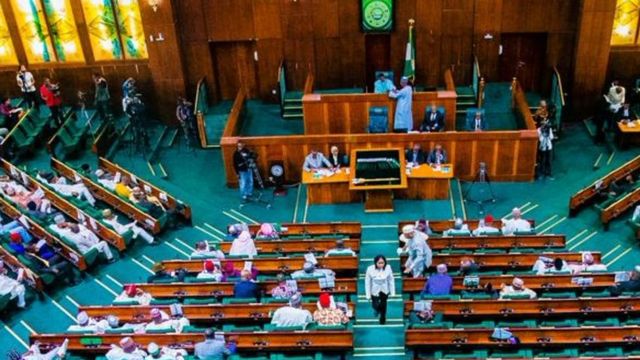In a significant move, approximately 60 members of the House of Representatives are pushing for amendments to the 1999 Constitution, advocating a transition from the current presidential system to a parliamentary system of government. Led by All Progressives Congress (APC) representative Wale Raji from Lagos State, the lawmakers cite the need to reduce the cost of government and encourage robust policy debates as key reasons for the proposed change.
The bill, titled ‘The Bills proposing constitutional alterations for a transition to a parliamentary system of government,’ was introduced by House Minority Leader Kingsley Chinda and 59 other lawmakers. It was presented for the first time during Wednesday’s plenary session in Abuja.
Broad-Based Support Across Party Lines
The lawmakers, representing diverse party affiliations, base their support on the necessity of adopting a parliamentary system at the Federal, State, and Local Government levels. Speaking at a press conference held at the National Assembly Complex, spokesman Abdulssamad Dasuki, a representative from Kebbe/Tambuwal Constituency in Sokoto State, emphasized the potential impact on the national political landscape.
Dasuki stated, “Our founders, in their wisdom, adopted the parliamentary system of government during the First Republic, a period marked by accountability and responsiveness to the people. The collapse of the First Republic and subsequent military rule led to the adoption of a presidential system, which, over time, has revealed its imperfections.”
Rationale Behind the Transition
Highlighting the imperfections of the current presidential system, Dasuki pointed out issues such as the high cost of governance, excessive executive powers, and lack of direct accountability to the people. The proposed bills aim to return to the accountable, responsible, and responsive governance system established by the nation’s founders.
Igniting National Conversation and Public Engagement
The lawmakers expressed their intention to spark a national conversation about the future of Nigeria’s governance system. They emphasized the importance of robust public debates, stakeholder consultations, expert analyses, and a thorough decision-making process. The bills aim to raise awareness and encourage constructive dialogue on the potential implications of the proposed constitutional alterations.
Key Features of the Proposed Parliamentary System
Under the parliamentary system, the President would be replaced by a Prime Minister, serving as the Head of Government, while the President’s role becomes ceremonial. These positions would be elected from the members of the legislature. Legislative elections would shift from general elections to voting within legislative bodies, streamlining the process and potentially saving costs.
Streamlined Administration and Increased Accountability
Advocates of the parliamentary system believe it would reduce bureaucratic hurdles, foster closer collaboration between the executive and legislative branches, and lead to a smaller central government. By replacing the President and Vice President with a Prime Minister and Cabinet chosen from the legislature, the system could reduce salaries and administrative expenses.
The proposed system envisions increased legislative scrutiny, making cabinet members more responsive to public needs and accountable. The lawmakers emphasized that their advocacy is driven by national interest, with the hope that the ensuing national conversation will pave the way for a governance system that aligns with the nation’s potential.
Long-Term Vision and Timeline
Wale Raji, the leader of the bill sponsors, acknowledged that the road to realizing this transition is lengthy. However, he expressed optimism about achieving the envisioned parliamentary system by a target date not later than 2031. The lawmakers conclude their statement by reaffirming their commitment to the national interest and their aspiration for a more effective governance structure for Nigeria.




